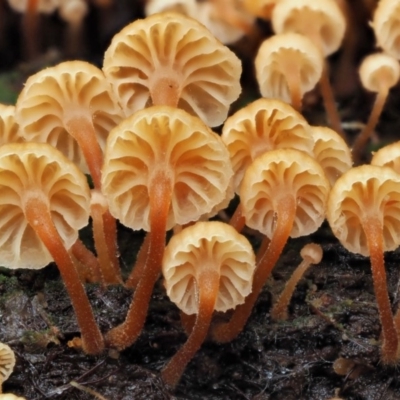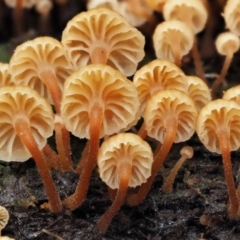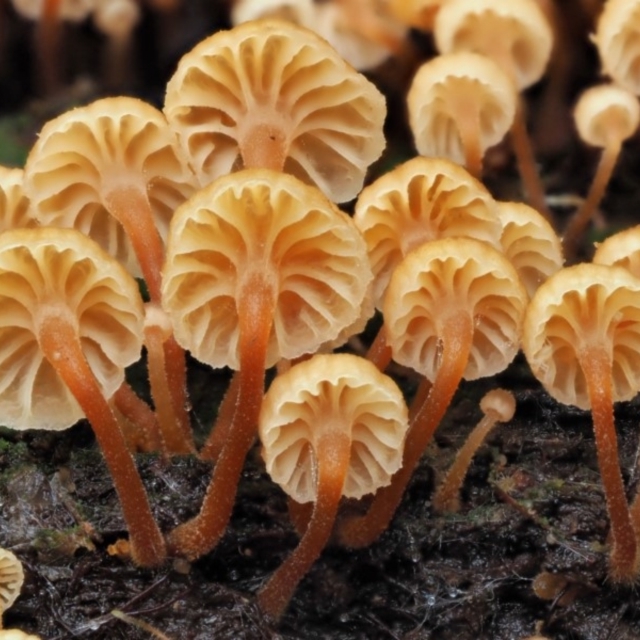Xeromphalina leonina
,<p> </p>
<p style="margin: 0cm 0cm 0pt; line-height: normal;"><span style="color: #000000; font-size: medium;">The fruit body is a small mushroom, with a yellow-brown to orange-brown ca, up to one centimetre in diameter. The cap is initially hemispherical but flatter late and with a slight, central, navel-like depression. Gill colour is much like that of the cap or a little paler. The stem is up to 15 millimetres long but only 1 millimetre wide and, towards the top, is of a colour similar to that of the cap but is reddish brown lower down . </span></p>
<p> </p>
<p style="margin: 0cm 0cm 0pt; line-height: normal;"><span style="color: #000000; font-size: medium;">There is neither a partial veil nor a universal veil.</span></p>
<p> </p>
<p style="margin: 0cm 0cm 0pt; line-height: normal;"><span style="color: #000000; font-size: medium;">Spore print: white.</span></p>
<p> </p>
<p style="margin: 0cm 0cm 0pt; line-height: normal;"><span style="color: #000000; font-size: medium;">The fruit bodies appear on rotting wood, usually in large colonies. </span></p>
<p> </p>
<p style="margin: 0cm 0cm 0pt; line-height: normal;"><span style="font-size: medium;"><span style="color: #000000;">The species was first described fin 1899 (as <em style="mso-bidi-font-style: normal;">Omphalina leonina</em></span></span><span style="color: #000000; font-size: medium;">), based on specimens found at the botanic garden at Kew, in London, growing on wood imported from New Zealand. Some years before specimens of this fungus had been sent to the Kew herbarium (from New Zealand) but had been misidentified. The species is known from Australia, New Zealand and Papua New Guinea. </span><span style="color: #000000; font-size: medium;"> </span></p>
<p> </p>
Xeromphalina leonina is listed in the following regions:
Canberra & Southern Tablelands
Species information
- Xeromphalina leonina Scientific name
- Common name
- Not Sensitive
- Local native
- Non-invasive or negligible
- Machine learning






